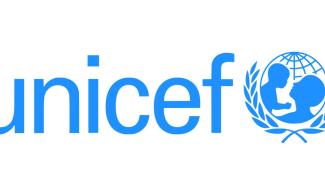
The girls' primary school attendance reportedly increased from 43% to 70% in the six states, while gender parity increased from 0.73 to 0.97.
The United Nations Children Fund (UNICEF) has confirmed that its Girls’ Education Programme Phase 3 (GEP3) raked in over 1.5million out-of-school girls in Kano, Katsina, Niger, Sokoto, Bauchi, and Zamfara states.
UNICEF in a release obtained by SaharaReporters on Thursday noted that between 2012 and 2022, the programme held in conjunction with the Federal Ministry of Education, and the Foreign, Commonwealth and Development Office (FCDO) of the United Kingdom gulped over $109 million investment.
The girls' primary school attendance reportedly increased from 43% to 70% in the six states, while gender parity increased from 0.73 to 0.97.
According to UNICEF, GEP3 works to enhance the quality of education for all children while also assisting females in gaining greater access to school and economic possibilities, therefore ending the cycle of poverty and disadvantage.
The statement noted that at the national closing ceremony held in Abuja on November 24, 2022, Cristian Munduate, the UNICEF Representative in Nigeria, said, “GEP3 has not only been successful in getting more girls into formal and non-formal schools, but it has also improved learning outcomes. GEP3 has raised the profile of educated girls, created new positive social norms in many communities and enabled a transformational shift in mindsets about the importance of girls' education.
“It is critical that we advocate scaling of the approach in all states. I express the deep appreciation of UNICEF to the UK Government for this long-term commitment and funding for girls’ access to primary school in northern Nigeria.
“Together there remains much work to be done, to ensure that girls transition to, and complete secondary education. This is important not only for the economic prosperity and wellbeing of the girl and her family, but to stem the high population growth expected in Nigeria. We see FCDO and the government of Nigeria as steadfast partners in this complex endeavor.”
The Minister of Education, Adamu Adamu, in his own remarks, said, “In our commitment to drastically reduce the number of Out of School Children, Nigeria appreciates the scaling of evidence-based solution in tackling this menace as provided through the GEP3. As we continue on this path, we would leverage on the success of GEP3 to plan better, budget better, and make better decisions in putting more Girl- Child in school.”
According to UNICEF, the programme was also instrumental in strengthening non-formal Qur’anic schools through the integration of foundational literacy and numeracy.
“To improve learning levels, the programme delivered an early literacy and numeracy intervention, the Reading And Numeracy Activity (RANA). RANA was designed to improve literacy and numeracy instruction in grades 1-3 in over 3,800 public schools and Integrated Qur’anic schools. RANA developed Hausa-language teaching and learning materials, built teacher capacity, mobilized communities and engaged local governments to improve early-grade reading policies.
“Over 67,000 primary school teachers, including those teaching in Integrated Qur'anic schools, were trained as part of the GEP 3 programme to improve their skills and ability to deliver quality education,” the release added.